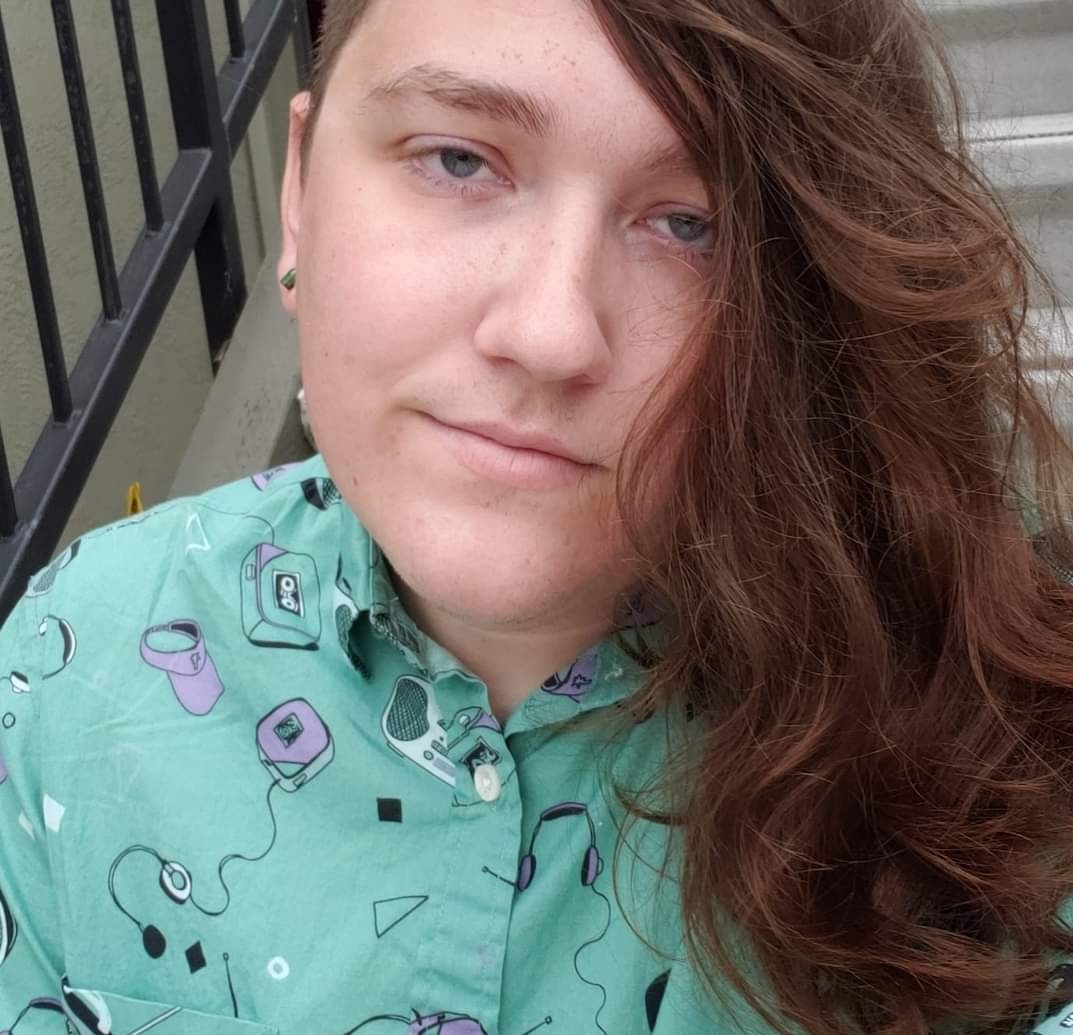Environmental Science MS
ENSCI Student Presents Research at Western Society of Naturalists Meeting

Mason Donny, a current Environmental Science master’s student, recently presented their research at the Western Society of Naturalists Conference on November 11. Mason's presentation was entitled "Use of Automatic Classification Image to Determine Historical trends of Mussel Bed Percent Cover on Bird Rock, SCI, CA."
The Western Society of Naturalists is a scientific society that strongly focuses on ecology, evolution, natural history, and marine biology. They have many members and have annual meetings in November. The organization offers the opportunity for students to present their research.
We recently touched base with Mason to learn more about their experience and what they took away from this experience. Check out their interview below.
In 3-4 sentences, please summarize your research.
Over the last four decades, there has been a decline in mussel bed populations, Mytilus sp., on Bird Rock Island, California. Actually quantifying the mussel bed loss was labor intensive, and historic counts were only created for quadrats, knowing total cover would be impossible without new techniques. For our study, we tested the accuracy of ArcGIS Pro's automatic image classification software in determining mussel bed percent cover using historical incidental camera photos from 1983 to 2016.
How has your work related to the courses you are taking at CSUMB? Do you find yourself utilizing the new skills you have gained through the ENSCI program?
The work I did for my research is honestly very niche. That being said I did have one course at CSUMB that briefly touched on what I did, that being Remote Sensing, which I was honestly very surprised about. Due to my research, I was instantly able to grasp the assignment and complete it in a short time.
I'm already utilizing every skill I've gained from the ENSCI program. Before this program, I thought my skill level was great but this program really has taken my research to a higher level.
Here is a list of skills I use the most: finding data for free or very cheap, setting up and developing a research approach that will minimize costs and time while maximizing data collection, refining my maps and infographics, confidence and knowledge to reach out to an organization for collaboration or questions, statistics refining, and gaining a much broader context of marine science through the lens of terrestrial systems.
What did you gain from this experience?
Through WSN I gained a broader perspective on marine science. There are a number of people who spend their entire lives learning very niche ecosystems or animals so being able to look into their research allows me to get a one-page quick version that took them years to learn.
Does this experience contribute to your career goals?
Most people would say networking through this conference is the best experience possible and that probably is the best thing to gain out of a program such as this.
While being able to connect with people is a cornerstone of collaboration, I would say my ability to connect what I want to do, what I can do, and how I can best present that information to the general public is more important. Showing off your work will impress more people than who you know.
What are your future plans? (Career goals, etc.).
Research, research, research. Through my time at CSUMB's environmental science masters program I've gained the toolkit to lead, create, and organize my own research at a solo level or group level for a minimal cost. I want to connect the general public with research and show that anyone can study biology at any education, language, or income level.
My goal would be to work with a public-facing research organization such as LiMPETS (which assists with lower income schools to give them access to marine research), MBARI/NOAA (which creates resources for members of the public to use), or the Monterey Bay aquarium (which directly interfaces with the public to provide education and outreach for marine species).
What was your favorite part of the conference?
By far my favorite thing about the conference is the variety of talks. There was an expert of pretty much every single concept of marine science and it was incredibly hard to pick between different types of talks. I also love to see how people approach the same problem in multiple ways. Overall, this conference gave me a ton of research paper ideas and new perspectives.
Any advice for fellow students interested in participating in this kind of research?
I would recommend if you are interested in AI-based counts starting with a free, publicly available resource such as CoralNet, which has a base accuracy rate of around 80% but you can manually train to to help increase the accuracy!
Take publicly available statistics and art courses (especially color theory to assist with cohesion and color blindness colors) through Coursera, as far as I'm aware all their courses are free, you just need to pay for a college credit certificate.
Download QGIS for free and learn it if you do not have access to ArcGIS Pro and start learning R Studio.
Make self-guides for anything you learned so you can easily refer to previous material to refresh yourself.
My takeaway is that you want to build up as many resources and free assets as you can so you can tackle any problem in your future research.
We're glad that you learned a lot from participating in this experience, Mason! We look forward to seeing where your professional endeavors take you.